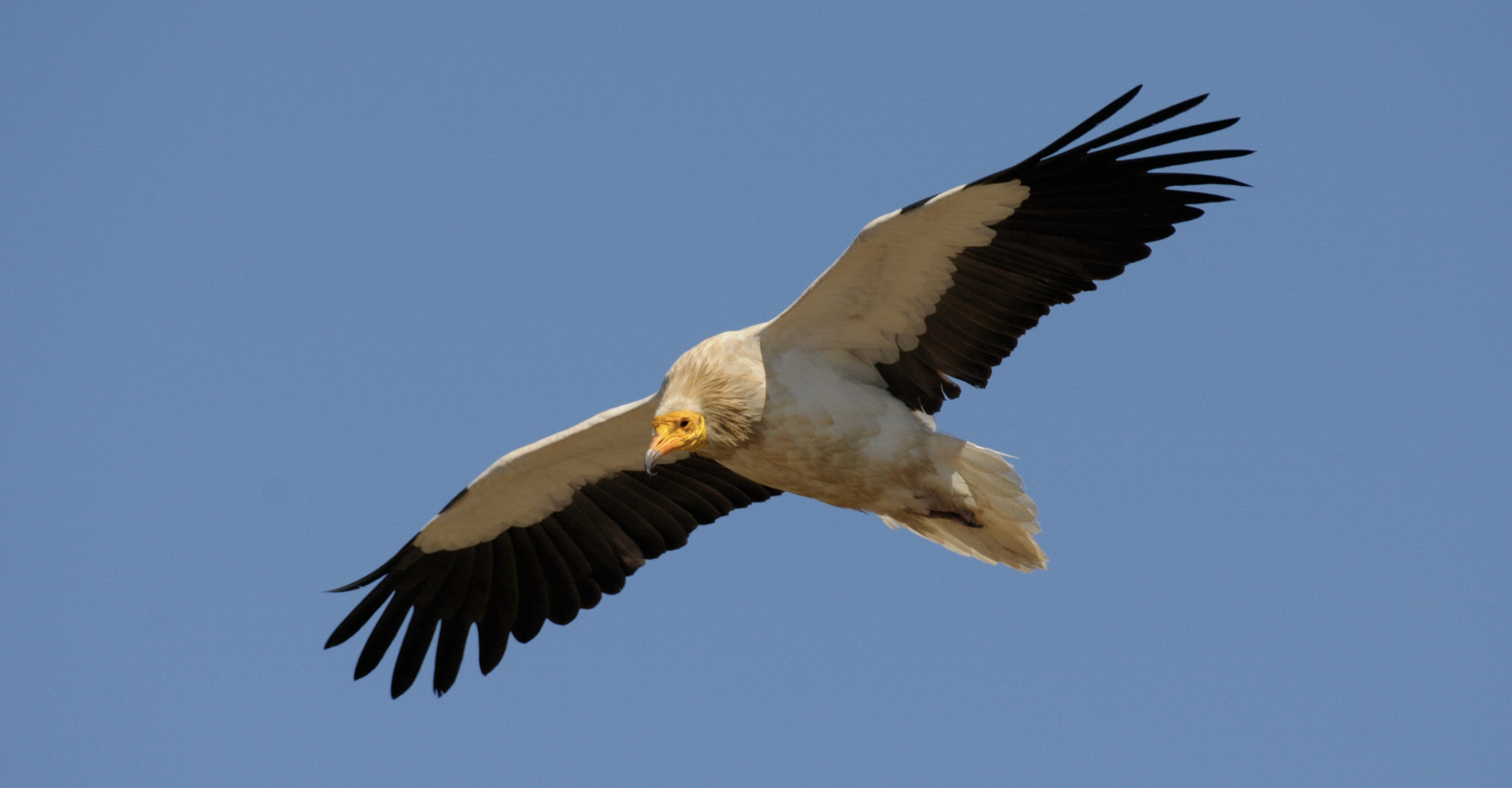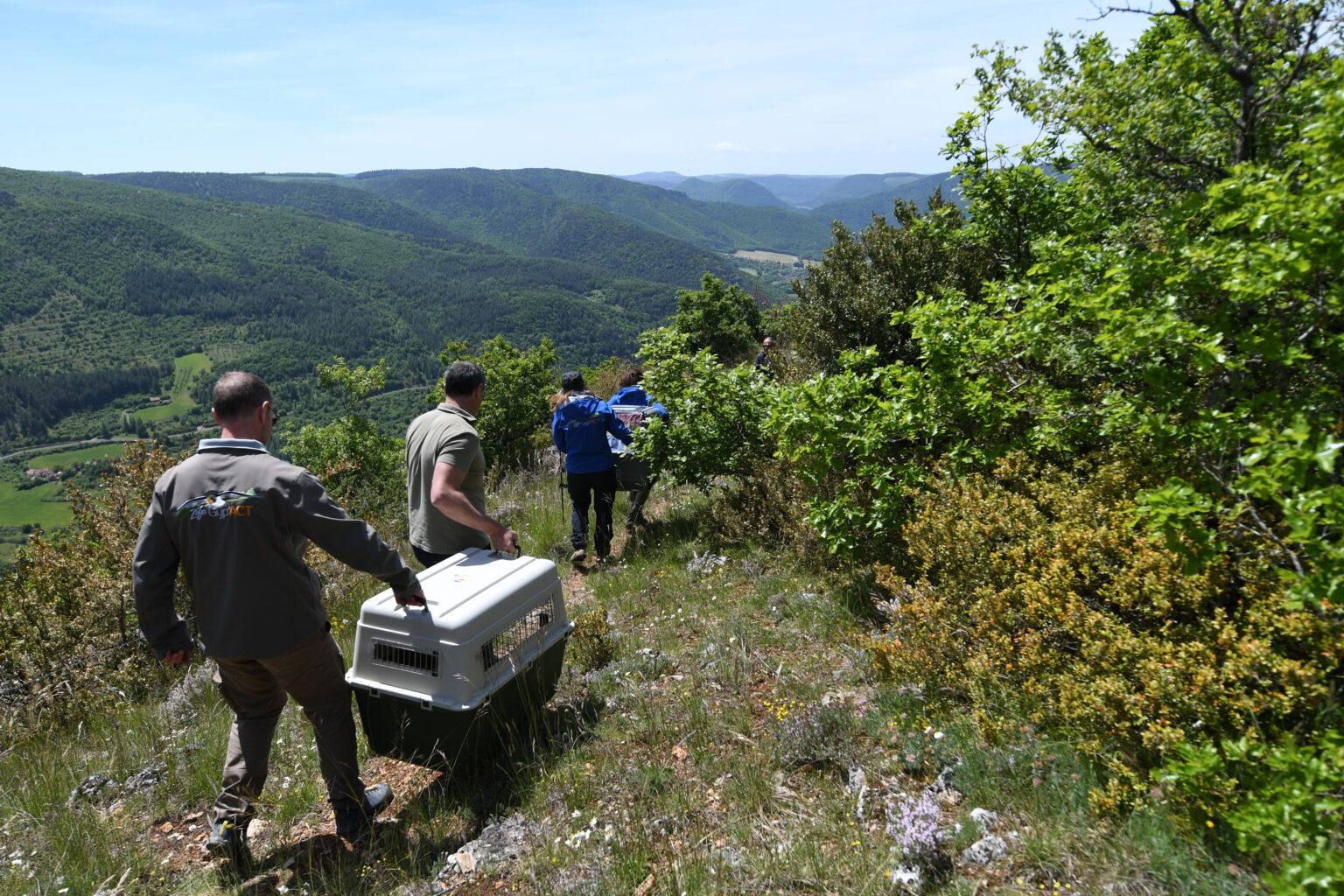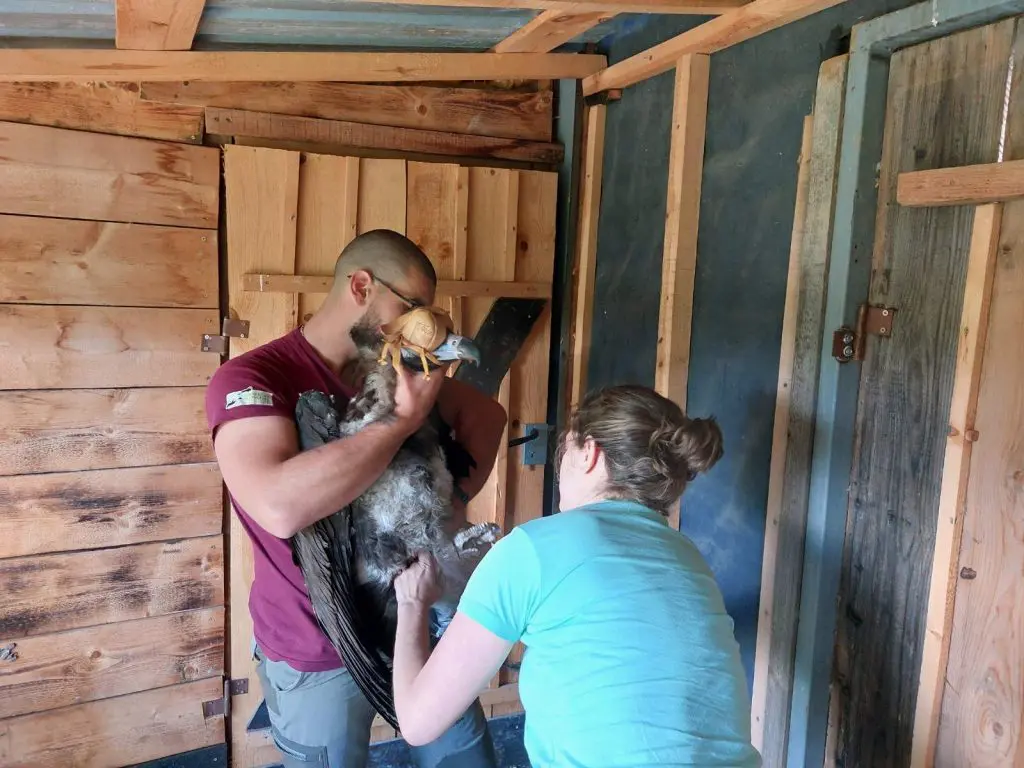
Four young captive-bred Egyptian Vultures are now part of Bulgaria’s wildlife! A team from the Bulgarian Society for the Protection of Birds (BSPB) and Green Balkans released the vultures using two different methods – ‘hacking’ and ‘fostering’.
Releasing the vultures into the wild

On the 2nd of August, a team from the Bulgarian Society for the Protection of Birds (BSPB) and Green Balkans placed three young Egyptian Vultures that hatched in the network of the European Association of Zoos and Aquariums (EAZA) and the Green Balkans Wildlife Rehabilitation And Breeding Centre in a specially adapted artificial nest. They also place another fledgling in a wild nest near Madzharovo. Bulgarian experts also relied on colleagues from zoos in Prague and Zlin, who again helped restore the population of this emblematic endangered species in Bulgaria. Before releasing the birds, the Egyptian Vulture New LIFE team equipped them with GPS-GSM transmitters to track their movements in nature and during their first migration.
Using two release methods

To release the young Egyptian Vultures, the project used two different methods – ‘hacking’ and ‘fostering’.
‘Hacking’ is a term used in conservation biology for the active management of a population and represents the placement of young captive-bred birds in an artificial nest where they will get used to the area and take it as their natural home, gaining wild bird behaviour. The adaption aviary (hack) – a special lightweight construction with a net and a pipe for the food and the water for the vultures, is built in a rock niche inhabited years ago by a pair of Egyptian Vultures. In this way, the birds can’t see the people who take care of them. A video surveillance camera is also installed to monitor the behaviour of the young vultures that will remain in the hack for about three weeks. Near the artificial nest, there is a feeding station where the young birds can easily find safe food after opening the door of the hack.
The team uses ‘Fostering’ for the second year in a row. They placed a captive-bred Egyptian Vulture in a wild nest. Experts carefully selected the nest based on its accessibility, the experience of the parents, as well as the number and age of the juvenile in it. The pair is subject to constant monitoring and supplementary feeding by the project team, and until now the parents have taken care of both juveniles.
The project

The activity is part of a 5-year experimental program for active management of the critically endangered Egyptian Vulture population in the Balkans in order to increase the breeding success and survival of the young individuals. It is carried out by a team of BSPB and Green Balkans within the framework of the LIFE project Egyptian Vulture New LIFE, which brings together institutions and organizations from 14 countries spanning the Balkans, Middle East, and Africa. The baby vulture has been donated to the project by Prague Zoo with the assistance of Anton Vaidl – coordinator of the European Endangered Species Programmes (EEP) of the European Association of Zoos and Aquaria (EAZA), and with the assistance of us here at the Vulture Conservation Foundation.




